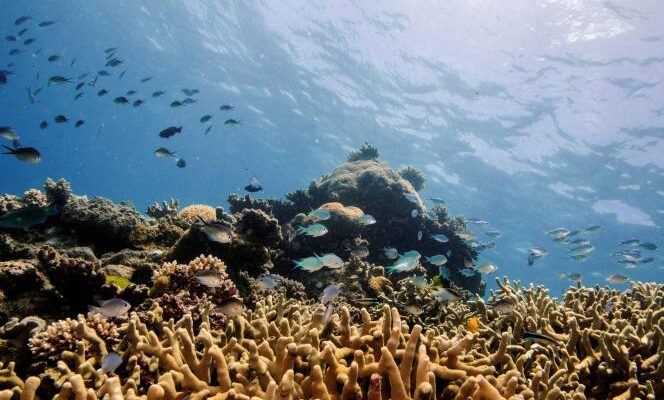Australia avoided, Friday July 23, that Unesco inscribes the Great Barrier Reef on its list of World Heritage sites in danger, despite the concern of the scientific community on the degradation of this unique ecosystem.
The World Heritage Committee decided to postpone such a decision after intense lobbying from Australia, which was opposed to it. “I would like to sincerely thank the distinguished delegates for recognizing Australia’s commitment to protecting the Great Barrier Reef”Australian Environment Minister Sussan Ley told the committee.
Committee members, including China, Russia and Saudi Arabia, felt that Australia should be given more time to take stock of its efforts to conserve the Great Barrier, inscribed in 1981 as World Heritage. . They also asked Unesco to send an assessment mission to the site, after criticism from Canberra accusing the organization of relying on existing reports to make its recommendations.
In June, the United Nations agency published the recommendations of its experts and advisory bodies suggesting that this ecosystem be placed on the list of sites in danger due to its deterioration, largely due to the recurrence of episodes of coral bleaching. , consequence of climatic upheavals.
“One of the most cynical lobbying in recent history”
Tim Badman, director of the World Heritage program at the International Union for the Conservation of Nature, said the Great Barrier filled ” without ambiguity “ the criteria for appearing on the list of endangered sites. “Despite the major efforts made by the State Party, the status of invaluable universal value of the Great Barrier Reef and the prospects for recovery have both deteriorated significantly”, he said.
For David Ritter, director of the Australia Pacific branch of the environmental organization Greenpeace, Unesco’s decision represents a “Victory for one of the most cynical lobbyists in recent history”. “It’s not a success, it’s a day of infamy for the Australian government”, he estimated.
Being on the list of endangered sites is not considered a sanction by Unesco, and some countries even see it as a means of raising awareness in the international community and contributing to the safeguarding of their heritage.
But Australia saw the eventuality as a slap in the face, fearing that it would undermine the tourist attraction of the coral reef, which stretches over 2,300 km and generates $ 4.8 billion in revenue for Australia’s tourism sector. . Mme Ley had traveled to Paris earlier in July to campaign with the countries on the committee. Canberra had gone so far as to take ambassadors to dive the Great Barrier Reef, and 12 of the committee’s 21 member states had offered to postpone the decision until 2023.
Coral bleaching
In 2015, Australia had already obtained a reprieve after a similar lobbying campaign and by promising billions of dollars in investments to protect the reefs. But since then, the whole has suffered badly due to three very serious episodes of coral bleaching.
Bleaching is a wasting phenomenon which results in discoloration. It is caused by the rise in water temperature – a consequence of global warming – which causes the expulsion of symbiotic algae that give the coral its bright color. Australian government scientists have claimed that many reefs have been showing signs of recovery in recent times, while acknowledging that the future outlook for the coral set is very poor.
Two-thirds of the Great Barrier are estimated to have suffered in one way or another. In addition to global warming or cyclones, it is threatened by industrial or agricultural activities or by the purple acanthaster, an invasive starfish. THE’Acanthaster planci – nicknamed “crown of thorns” or more facetiously “mother-in-law’s pillow” – feeds almost exclusively on corals, can reach one meter in diameter and is endowed with quills whose venom is toxic to humans.
In its recommendations, Unesco accused Australia of not having met its water quality targets and attacked Australia’s poor climate record. Australia’s Conservative government is facing growing criticism for not setting itself the goal of carbon neutrality by 2050. Prime Minister Scott Morrison said the country hoped to achieve it ” as soon as possible “. Australia is one of the world’s leading exporters of coal and natural gas.
